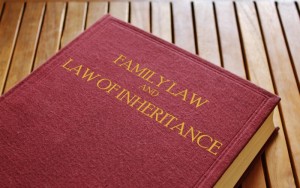SECTION 4 OF MFLO
We live in a Muslim society. Today, in Muslim societies, family laws are governed by religious precepts, embodied in modern systems of law. The system of Islamic law is almost, in every Muslim state or state with Muslim majority changed, from an uncodified and locally administered set of laws to a codified, state-centered system with jurisdiction over family law. Likewise, the Government of Pakistan also developed a family law in different tenures. In the 1960s, the government of Pakistan legislated on family laws, and adopted the “Muslim Family Laws Ordinance, 1961”. It is the most remarkable reform to Pakistan’s family law.
The Muslim Family Law Ordinance, 1961 (MFLO) is the most important but controversial reform law in Pakistan. In this article, the study of the share of orphaned grandchildren under Family Laws Ordinance 1961 has been critically evaluated and compared with the Islamic Family Law.
Succession
Succession is basically the procedure of distribution of assets and estate of deceased among family members of the deceased. The Islamic law of inheritance is one of the most comprehensive systems of intestate succession. In the Muslim Personal Law of Pakistan, there is a clause prescribed on succession.
Section 4 of Muslim Family Laws Ordinance 1961 reads as follows:
“ In the event of death of any son or daughter of the propositus before the opening of succession, the children of such son or daughter, if any, living at the time the succession opens, shall per stirpes, receive a share equivalent to the share which such son or daughter, as the case may be, would have received if alive.”

If the father or mother have passed away, their children will receive a share in the inheritance of their grandparent at the time the succession opens. (Section 4 of Muslim Family Laws Ordinance, 1961)
Orphaned grandchildren will get the direct share in grandfather’s assets. This solution offered by the MFLO is simpler and straightforward, but it upsets the very structure and scheme of the Islamic law of inheritance. This section is contrary to the principles of Islam as a direct inheritance to grandchildren is not prescribed in the Quran or Sunnah.
The principle of inheritance covering males and females are laid down in the verses of Surah An Nisa. In verse 7, it is stated:
لِّلرِّجَالِ نَصِيبٌ مِّمَّا تَرَكَ ٱلۡوَٲلِدَانِ وَٱلۡأَقۡرَبُونَ وَلِلنِّسَآءِ نَصِيبٌ مِّمَّا تَرَكَ ٱلۡوَٲلِدَانِ وَٱلۡأَقۡرَبُونَ مِمَّا قَلَّ مِنۡهُ أَوۡ كَثُرَ ۚ نَصِيبًا مَّفۡرُوضًا
“ Unto the men (of a family) belongeth a share of that which parents and near kindred leave behind, so there is a share for women in what their parents and kindred leave behind, whether it be little or much, a legal determinate share ordained (by Allah) ”
Surah Nisa verse 7
By the application of section 4 of Muslim Family Laws Ordinance 1961, the conventional distribution of the estate, under the Islamic law, gets into a new, and rather a different perspective. Anderson gives three examples to explain this situation. One of them is as follows:
Let us suppose that P has two children, a daughter A, and a son B, and that B predeceased his parent leaving a daughter C. If no other relatives are involved, the Pakistani law will result in the son’s daughter C taking ⅔ of the estate, as the share which her deceased father would have taken, and the daughter A taking one-third. The usual rules under Muslim Law (Sunni Law) would have initially allowed one-half to the daughter and one-sixth to the son’s daughter, and would then have given them(after the application of the Doctrine of Return) three-quarters and one quarter respectively. It is needless to say here that the application of section 4 of Muslim Family Laws Ordinance 1961 results into C receiving the higher quantum of her grandfather’s estate than she would have got had her share from father’s estate (then she would have received just one-half of her father’s estate).

While doing the comparative study of succession in the light of Sharia and Pakistani law, the question ponder in my mind is that as the predeceased children of a propositus could not inherit anything from their parent then how can their sons and daughters inherit the quantum of their shares, which never arise to them in first place?
So, from the study, it is concluded that the propositus, in his, lifetime, was the sole owner and proprietor of his properties and right to inherit his properties could only operate on his death not before. Therefore, the orphaned grandchildren could not inherit the portion which their parent could not because he/she died before the opening of the succession.
This law is made with good faith and the aim of section 4 is to provide the orphaned grandchildren with the rights they had lost because of their parents dying before their grandparents. But, in light of the principles of equity, I lead to a result that orphaned grandchildren should have shared in the estate but within the bequeathable third (Wasiyat), without, violating the right of the other heirs. As it is stated in verse 180 of Surah Al Baqarah:
It is prescribed for you when death approaches one of you and he is leaving some property behind him, he should bequeath unto parents and near relatives in kindness; it is an obligation on those who fear Allah.
In Allah Rakha v Federation of Pakistan, the court held that section 4 of MFLO is contrary to the Islamic Law of Inheritance.
